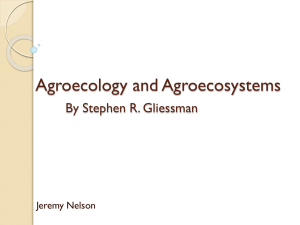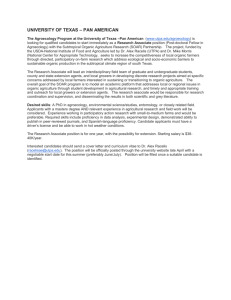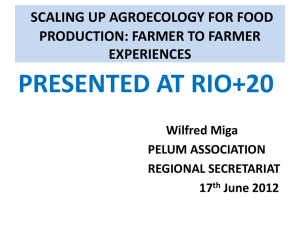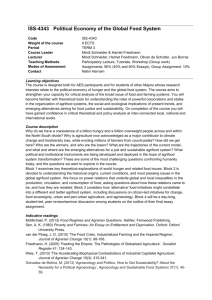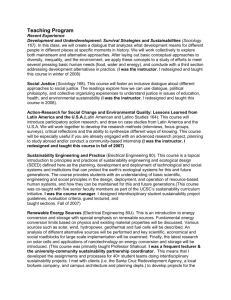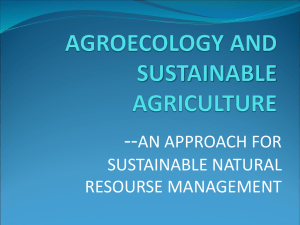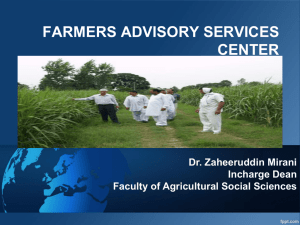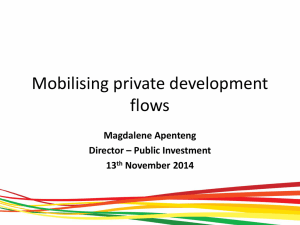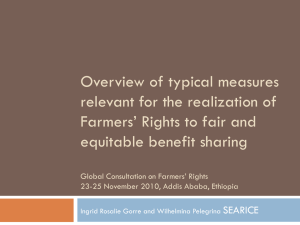Presentation on What investments are needed to scale up
advertisement
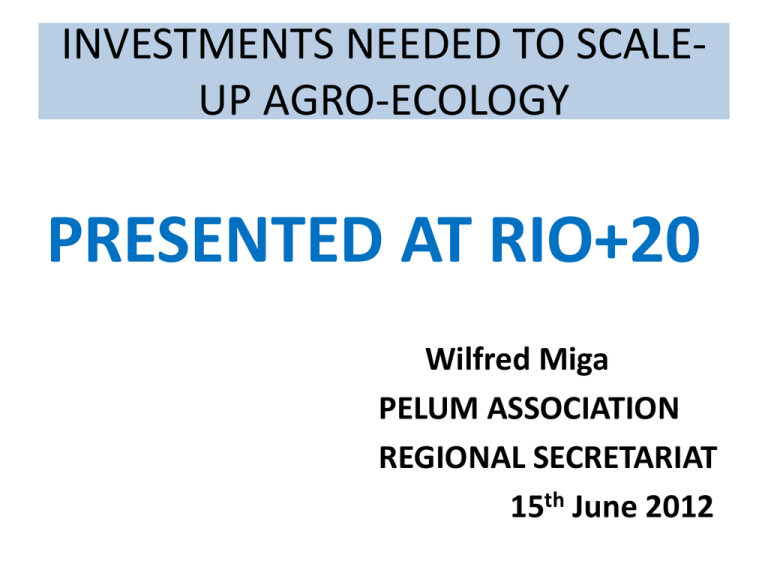
INVESTMENTS NEEDED TO SCALEUP AGRO-ECOLOGY PRESENTED AT RIO+20 Wilfred Miga PELUM ASSOCIATION REGIONAL SECRETARIAT 15th June 2012 PRESENTATION OUTLINE •Introduction •Current trends •Required investments •Conclusion INTRODUCTION • Agro ecology is a form of agriculture that integrate natural, regenerative processes; minimize non renewable inputs; involves locally adapted practices and encourages biodiversity. • Agroecology has strong historical roots in traditional farming systems globally • Small scale farmers in Africa have used this system for both subsistence and income generation • It is deeply rooted in their traditional and cultural agriculture practices because of its low cost input requirements. CURRENT TRENDS • Agriculture sector provides employment to about 70% of the population and contributes around 30% of GDP in almost all the countries in SSA. • Women are 80% of the population employed in the agricultural sector. • Currently, most governments in Sub Sahara Africa spend less than 10% of their national budgets on the agriculture sector despite the AU Maputo declaration commitment. • Of the budget allocated to agriculture about 60% is spent on subsidizing external farm inputs specifically on seed and chemical fertilizers. REQUIRED INVESTMENTS • Water management systems like provision of Irrigation facilities to complement the high dependence on rain fed agriculture and appropriate drainage in highly flooded areas • Infrastructure development like improved rural road network, transport and communication, post harvest handling and storage facilities, accessible and convenient market premises and value addition processing plants. • Improve extension service delivery to build farmers capacity in agroecology farming practices. REQUIRED INVESTMENTS cont. • Community based seed production to grantee seed sovereignty and consequent food security. • Effective markets access by strengthening farmers marketing skills and supportive policy frameworks. • Participatory agriculture research that taps into farmer innovations and indigenous knowledge. This will provide the scientific evidence and increase farmers appreciation and demand for agroecology. • Policy formulation and implementation should be participative and open to all stakeholders. CSOs and farmers should be facilitated to advocate for agroecology supportive policies and engage policy makers appropriately and skillfully. CONCLUSION • There have been huge calls for increased private sector investments in the agriculture sector led by the G8 and G20 that promote MTNCs. This approach of foreign direct investments is a threat to agroecology and the livelihoods of small-scale farmers that are being displaced from the markets and the land. • More investments are needed to support agroecology practices to increase production, develop appropriate value chains and market access that will result into improved livelihoods. THANKS FOR YOUR KIND ATTENTION
